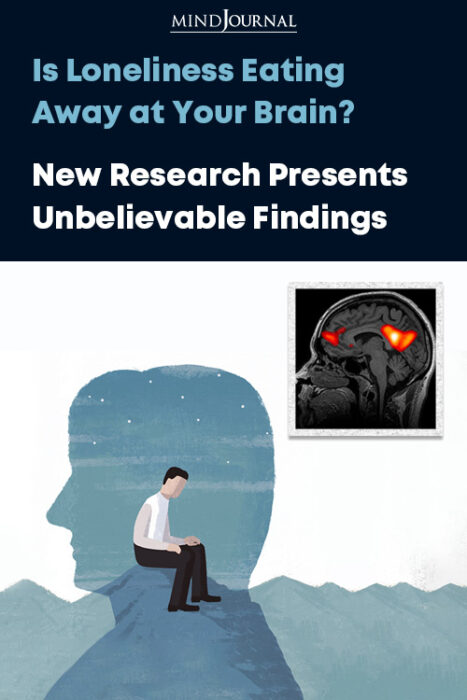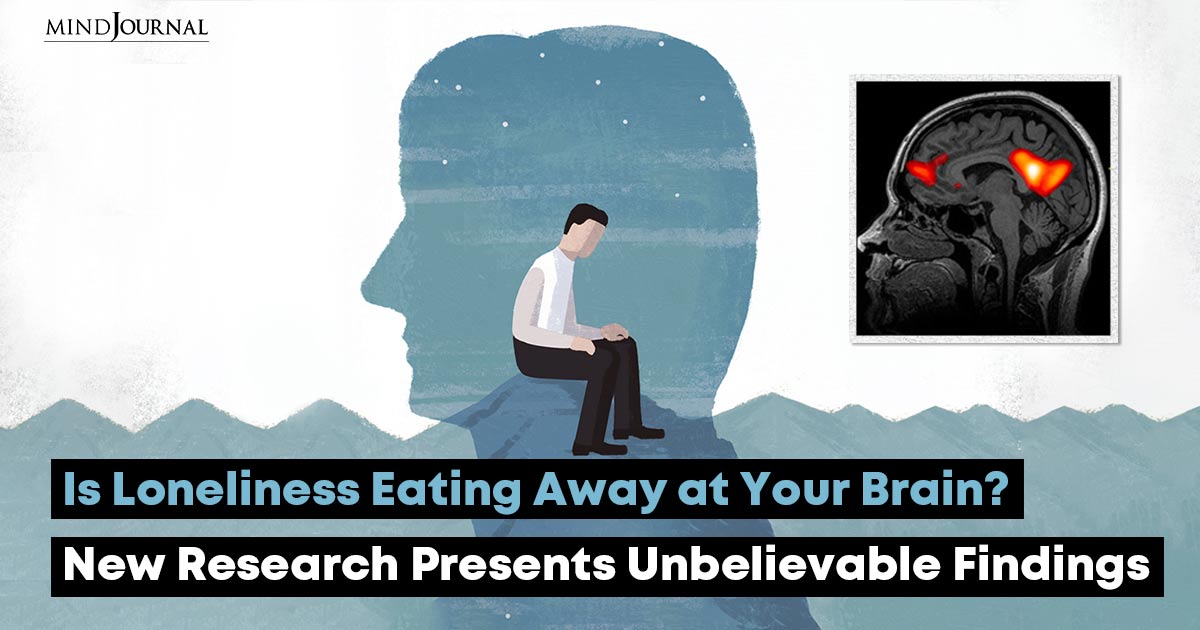Loneliness has become a substantial health concern, and recent research reveals a compelling correlation between loneliness and brain shrinkage in healthy older adults.
The study found that individuals with fewer social contacts exhibited smaller brain sizes, whereas those with more extensive social connections had larger brains.
Specifically, the study highlighted reduced volumes in brain regions such as the temporal lobe, occipital lobe, cingulum, hippocampus, and amygdala among individuals experiencing lower levels of social interaction. This study was published in the Journal of Neurology.
Study To Understand The Link Between Loneliness And Brain Shrinkage
A study conducted by researchers from Kyushu University in Japan aimed to investigate the impact of social contact on brain health. A group of researchers conducted a thorough examination involving 8,896 elderly men and women, carefully analyzing and comparing their MRI brain scans.
By scrutinizing the brain scans of these participants, the researchers aimed to uncover any correlations between social interactions, lifestyle factors, and brain health, contributing to the growing understanding of the complex relationship between social contact and cognitive well-being in older adults.
Additionally, the participants were asked about the frequency of their contact with friends or relatives who did not live with them, categorized as every day, several times a week, several times a month, or seldom.

The study revealed that individuals with the fewest social contacts had significantly lower overall brain volume compared to those with more extensive social interaction.
This implies that social isolation and limited social interactions may have a negative impact on brain health, potentially leading to structural changes within the brain.
Moreover, socially isolated individuals exhibited a higher prevalence of white matter lesions, which shrinks the brain, and indicate areas of brain damage, in contrast to those with frequent social contact.
Read more here: The 3 Factors to Overcome Loneliness According To Studies
While the study does not establish a causal relationship between loneliness and brain shrinkage, study author Toshiharu Ninomiya stated that other research has indicated that exposing older individuals to socially stimulating groups could potentially halt or even reverse declines in brain volume and enhance thinking and memory skills, as reported by Neuroscience News.
Loneliness – Public Health Crisis
This research contributes to an expanding body of evidence confirming the gravity of loneliness as a global public health crisis.
In July, a study demonstrated that diabetic individuals experiencing loneliness are more susceptible to cardiovascular disease compared to the general population. Interestingly, isolation’s influence on diabetes patients surpassed that of depression, smoking, physical activity, or diet.
Likewise, a study published in June hinted at a potential link between cancer patients who have strong support networks and better survival rates. The repercussions of social isolation transcend age and health conditions, as Generation Z individuals seem to bear the brunt, with around eighty percent reporting feelings of isolation—twice the rate observed among senior citizens.
The study shed light on the importance of social connections and their impact on various demographic groups, emphasizing that social isolation can significantly affect the mental well-being of young adults as well as older individuals.
Read more here: The Dilemma Of Loneliness: How To Stop Feeling Lonely
The higher prevalence of isolation among Gen Z highlights the urgency of addressing this issue among the younger generation, as it may have implications for their long-term health and overall well-being. To create a healthier and more connected society, addressing loneliness must be recognized as a vital public health concern across all age groups.
Surgeon Dr. Murthy emphasizes the urgency of prioritizing social connection just like other critical public health issues such as tobacco, obesity, and substance use disorders due to the significant health consequences associated with loneliness and social isolation. He advocates for collective efforts to create a healthier, more resilient, and interconnected nation.









Leave a Reply
You must be logged in to post a comment.